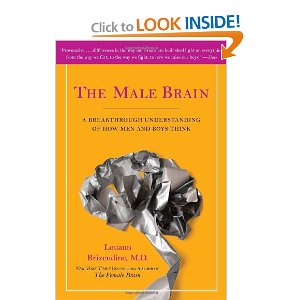By RP Nation, on Fri Nov 30, 2012 at 11:00 AM ET As the new Steven Spielberg movie has reignited our national passion for our 16th President, we continue our series of posts from one of the nation’s leading experts on the topic: Dr. Matthew Pinsker, a Lincoln scholar, Civil War historian and college professor based at Dickinson College in Carlisle, PA (and of course, longtime Friend of RP). For the last five years, Pinsker has personally trained more than 2,500 K-12 educators on Civil War and American history topics, and he has also been directing the House Divided Project, a digital effort designed to help classroom teachers use the latest technologies to promote deeper study of the American Civil War during its 150th anniversary.
Click here for his first column.
Here is is second, cross-posted with Quora.com, with permission of the author:
Why do most people think of Lincoln as an anti-slavery President? Wasn’t he really more a pro-reunification president?
The best way to answer this question is to begin by defining terms. When Lincoln wrote on August 22, 1862 in his famous open letter to Horace Greeley, “My paramount object in this struggle is to save the union and is not either to save or to destroy slavery,” he was employing a word –“union”– that meant different things to different people (and still does, by the way). For Lincoln and the Republicans, the union was never merely a collection of states. Nor was it a centralized federal government or some abstract attachment to a paper Constitution.
This is the key point and what always leads to confusion. For Lincoln especially, the “union” was “the people” –as in “We the people” and what should properly be considered the fundamental and most revolutionary American doctrine of popular sovereignty.
 Professor Matthew Pinsker Look carefully at all of Lincoln’s wartime speeches and statements and you will see that behind the phrase “save the union,” Lincoln always meant to protect the results of the 1860 election which he believed had defined the popular will through a legitimate electoral process. That’s how he justified calling himself a unionist even though he led a sectional party. That’s why he refused practically all compromises during the secession crisis because he believed that they failed to acknowledge how much the election mattered. And that’s why he pursued increasingly “hard war” policies against the Confederacy, including emancipation, that ultimately turned the war into what he had once warned against, “a remorseless, revolutionary struggle.”
In other words, Lincoln was both anti-slavery and pro-union. In fact, he considered those positions one and the same, because he defined “union” as the popular will which by the 1860 election results had determined that the future of the country was to be free, or, as Lincoln put it at Gettysburg, to be “a nation conceived in liberty and dedicated to the proposition that all men are created equal.” He was always willing to reunify the country on those terms, and never willing to consider anything less. This is, by the way, exactly the question that Steven Spielberg’s new movie, “Lincoln,” intends to examine by focusing on the last few months of the war and what the movie-makers present as the fundamental choice that Lincoln navigated during that period between pushing for a Thirteenth Amendment to abolish slavery or pursuing potential peace talks with Confederates.
By Lisa Miller, on Wed Nov 28, 2012 at 8:30 AM ET
In 2005, after reading yet another inspiring book by Deepak Chopra, I gave myself a birthday present and attended my first Chopra Center weeklong class called, SynchroDestiny.
The title still excites me and I can tell you that it was fantastic. Dr. Deepak is a terrific presenter with a peaceful, engaging presence, and when he signed my book he was warm and present. At our farewell dinner we chatted about a mutual acquaintance and I felt, and do still, that he is swell guy and one of the most influential leaders of mind-body medicine in our modern world today.
It was at this Chopra Center class that I was introduced to meditation for the first time, and it was there that I thought meditation was baloney the first time, the second time, the third, and twice a day for the entire week.
I really did want the promised health benefits of optimum blood pressure, deeper mental and emotional stability, and a state of “restful awareness” that would ensure a stressless existence, but my struggle to sit still in silence seemed to indicate I was wasting my time. I could NOT calm my mind, I could not focus, I could not enjoy it and I certainly did not see a future in meditation for myself.
As you gain experience with meditation, you’ll begin to feel the reappearance of youthful energy and vitality that is being released from the deeper level of the nervous system. This is a very profound change and the real fountain of youth.
Perfect Health: The Complete Mind Body Guide, Deepak Chopra, M. D.
But I persevered along with the other 50 or so attendees because it was part of the deal and because I had paid for the entire Chopra Center experience with my birthday savings. And because I was loving the rest of the SynchroDestiny intensive.
 So I returned home and went about life as usual and felt pretty good. For me, there’s nothing like a vacation that includes learning, great food, AND massage. And because I hate to give up before the promised results, I continued to try to meditate daily despite feeling I was getting nowhere. So I returned home and went about life as usual and felt pretty good. For me, there’s nothing like a vacation that includes learning, great food, AND massage. And because I hate to give up before the promised results, I continued to try to meditate daily despite feeling I was getting nowhere.
And then something happened two weeks later, the day my handyman Elvis, worked in my attic.
CRAAAAAAAAASH! I looked up from my computer to see Elvis’s feet dangling through a hole in my second story hallway ceiling as huge pieces of paint and dry wall and ceiling continued to break off to expose his entire lower body.
I should add here that because we have vaulted ceilings from the living-room up, the distance to the closest floor is 40 feet.
Yes, a man was falling and holding on for his life, in my home, no joke. And he was screaming, and kicking his legs around in panic, just the way it looks in movies. The fear was palpable.
But I felt completely and genuinely calm, “Hey Elvis, don’t worry, you’ll be ok—just hoist yourself back up slowly and come on downstairs—I’ll make you some tea.”
What? Who was this strangely calm and reassuring being that had taken over my senses, my spirit, my own vocal chords?
Read the rest of…
Lisa Miller: Adventures and Fun with Deepak Chopra & My Handy Man Elvis
By John Y. Brown III, on Wed Sep 26, 2012 at 12:00 PM ET  Idea for bookstores to save the world. Idea for bookstores to save the world.
Yesterday in Barnes & Noble book store I browsed three different sections.
Politics section. It seemed like every book title was about blaming somebody or some group or some thing for all of our problems.
Self-help section. All the titles seemed in this section seemed to be about taking responsibility for yourself and not blaming others and making the most of your life.
Humor section. Just fun and frivolous titles that make a mockery of our day-to-day world and help lighten my day and restore my perspective.
So, here’s my big idea to save the world.
Take the Self-help books and place them in the Political section. That way we will help end the blame game and start thinking about what we each can do to make things better.
Take all the books in the Humor section and place them in the Self-Help section. Frankly, having a good laugh or two each day is better than buying and reading an entire new book we won’t act on anyway.
And, finally, place all the books from the Political section in the Humor Section. Those books will then be properly categorized and are frankly a lot funnier than most the books in that section anyway when you take them at face value. And they will stop being confused for books that teach or inform us—and finally serve some useful purpose.
By John Y. Brown III, on Mon Sep 24, 2012 at 12:00 PM ET  I recently read this book. It’s titled The Maie Brain. And is a science-based based, well researched book on the inner workings of the male brain. I recently read this book. It’s titled The Maie Brain. And is a science-based based, well researched book on the inner workings of the male brain.
I’m a guy so, you know, I was hoping to find out some pretty encouraging stuff about the we guys think.
But it was more like a personality test you take in the back of a magazine that tells you, after spending 45 minutes finishing it, that you really aren’t very interesting after all.
Except with this book, you can’t go back and change your answers to make yourself more interesting.
 Actually, the image that kept coming to me as I approached the last few chapters will date me. Actually, the image that kept coming to me as I approached the last few chapters will date me.
It was Geraldo Rivera’s infamous opening on live TV of Al Capone’s secret vault. The event was hyped for weeks. And all Geraldo found when opened was a stop sign and two lunch pales.
At least Geraldo didn’t write a book about it.
By Jonathan Miller, on Mon Sep 24, 2012 at 8:30 AM ET 
A few weeks ago, I received an interesting assignment from my hometown newspaper, the Lexington Herald-Leader: For a special section that would highlight what was especially special about Central Kentucky — “Go Big Bluegrass” — I was asked to prepare an essay on the state’s rich political history…in 400 words or less.
Here’s an excerpt from my piece:
Despite its modest size and a location that’s remote from the centers of power, Kentucky has exercised considerable political influence since nearly the beginning of the republic.
Much of our early prominence stemmed from Lexingtonian Henry Clay, arguably the most influential politician of the early 19th century. Though he’d famously “rather be right than be president” — and proved it by losing several presidential bids — Clay occupied many other important national offices, from speaker of the House to secretary of state.
Most significantly, “The Great Compromiser’s” scrupulous and diligent statesmanship helped delay civil war for several decades. Clay’s greatest triumph, however, may have been in inspiring into public service the very rail-splitter who led us through that bloody conflict.
While Abraham Lincoln spent his formative years in Illinois, his iconic log cabin birthplace is in Hodgenville; he married into a prominent Lexington family; and as president, he clearly recognized the strategic value of his home state: “I hope to have God on my side, but I must have Kentucky,” he said.
Click here to read the full piece.
And then let me know how I did: Whom did unfairly omit? How did I err, exaggerate or evade?
And best of all — if you can do it better, leave your 400 word attempt in the comments section below. Or send me an email to Staff@TheRecoveringPolitician.com.
By John Y. Brown III, on Tue Sep 18, 2012 at 12:00 PM ET  Why I write on Facebook. Why I write on Facebook.
Several years ago I was watching one of those news magazine shows and the story was about the the explosive popularity of eBay. A very busy business man was interviewed who used eBay almost daily for routine purchase.
They asked him why he liked eBay so much. He paused for a moment and answered, “I work constantly on multiple business deals during the day and when I take a few minutes break I want a diversion that truly takes me away somehow. So I go the eBay on my laptop and check things I’m bidding on. It is a sort of release. Even if it’s only 5 minutes at a time 8-10 times a day. It helps center and refresh me.” Those aren’t the exact words, but they convey the idea of what he said.
I think I use Facebook the same way. It’s a sort of release several times a day that helps refresh and center me. And, yes, connect me –to people in the rest of my world (virtual world, anyway).
And at some point in my mid 40’s something happened to me. I was in a restaurant in Frankfort with several friends and someone at the table pointed out another table with a group of energetic young people. Normally when I’d see a table like that, I’d avoid them but I turned slowly to my (younger) friend and smiled broadly and said, “I can’t explain it, but I don’t really want to meet those young people—but I do have this overwhelming desire to mentor them. It’s bizarre. I just want to put my hand on their shoulder and offer advice. What the heck? Am I going through male menopause? Am I molting or something? What is happening to me? Oh, and by the way, I want to talk to you about your relationship with your father and how that is hindering you in your personal and professional life.”
OK, That’s not verbatim….but it’s in the ball park.
My friend didn’t want my advice. And the young people at the table didn’t either.
So I opened a Facebook account where I can write these random, disjointed, goofy but sometimes marginally (or accidentally) insightful thoughts that pop into my head. For fun and for free. Besides, I don’t have any other hobbies to take up my time.
And it is cathartic.
Oh, and the other thing that happened at about this same time, I decided it was better to be real and connect with people as you are than to be admired and never really connect with people as yourself. Which means, well, you just don’t care as much anymore what others think. What you think becomes more important to you. At least it did for me. Appropriate but real. Respectful but open.
And that is cathartic too. And surprising. I never know what is going to come out of me. So….I guess I’ll keep doing it until this molting phase is complete.
By John Y. Brown III, on Tue Aug 7, 2012 at 12:00 PM ET
 About 16 months ago I agreed reluctantly to write a weekly column for the new Recovering Politician blog. I believed in the idea and wanted to support my friend Jonathan Miller’s efforts. About 16 months ago I agreed reluctantly to write a weekly column for the new Recovering Politician blog. I believed in the idea and wanted to support my friend Jonathan Miller’s efforts.
Personally, my hope was to write 4 or 5 obligatory columns and then start coming up with excuses for why I couldn’t continue and then just slip off his radar.
But that didn’t happen. I started making up excuses for why I couldn’t continue after my first and only column. I enjoyed writing the column but I didn’t want to be under a deadline, didn’t have the time to devote to a regular lengthy columns, and didn’t want to write about politics.
Jonathan then came up with a compromise. He said, “Don’t feel obligated to write anything. Don’t write about politics and make it informal and conversational —like when you write something on Facebook. (I had just gotten in the habit of posting random thoughts on Facebook.)
Jonathan went on, “But when you do feel the desire to write, post it on Facebook and if it is something that can work on the blog, I’ll post it.”
I was stuck. There was nothing to say “no” to. So I mumbled that it sounded like a good idea. And it was.
This my 200th post for The Recovering Politician. About 199 more than I thought I had time for under the original plan.
So, thanks Jonathan for the opportunity to write for your blog. Thanks also for the encouraging nudge. And thanks to all of my Facebook friends for putting up with my fits of conversational prose, impulsive observations, quirky insights and a dozen other kinds of random, mundane and fleeting thoughts.
Here’s the original piece for the RP that–in truth–I tried to come up with an excuse not to write before I finished it. But somehow got it done. And am glad I did.
By RP Staff, on Tue Jul 24, 2012 at 1:30 PM ET While traveling through the Jewish State, The RP was interviewed about his new book, The Liberal Case for Israel by The Times of Israel. Here’s a clip:
 Q: Your book debunks “eight crazy lies” about the Jewish State. Are they actually lies, or possibly misunderstandings? Q: Your book debunks “eight crazy lies” about the Jewish State. Are they actually lies, or possibly misunderstandings?
A: There are many misunderstanding, but I identify untruths that really do rise to the level of crazy lies. This includes the libel that Israel is an Apartheid state and the ridiculous notion that Israel promotes gay tourism as a way to “pinkwash” its faults.
Q: One of the lies you debunk in the book is the use of the word “apartheid” when referring to Israel. In brief, what is your argument against this lie?
A: Arab citizens of Israel have all of the same rights and responsibilities as their Jewish neighbors (with one exception — military conscription which is now being debated.) This thoroughly refutes the notion that there is apartheid. Even in the disputed territories, Palestinian engage in self-government — a completely opposite approach of the former apartheid regime in South Africa.
Click here for the full article, and click here to purchase The Liberal Case for Israel.
The RP was also interviewed by Israel’s Titan Poker Blog for his exploits in Las Vegas a few weeks ago. Click here to read the entertaining interview.
By Jonathan Miller, on Mon Jun 25, 2012 at 3:00 PM ET
Click here to purchase this book. NOW!
It’s rare that I have the opportunity to recommend a book — much less have the time to read one — but I’ve just run across the best work of fiction that I’ve started to consume in some time.
It’s called The Art of Fielding; it’s written by a first time novelist, Chad Harbach; and even after I was able to pry myself from the book to get a little writing done myself, I had a very difficult time trying to stop thinking about it.
Indeed, that’s what the book is about. Although I have only completed half of it, I have never read anything that so brilliantly dissects and examines and illuminates that little voice in your head that won’t stop talking and that leads you do stupid things like insult a friend, run a red light, or throw an errant baseball.
While the subtext of the book revolves around the baseball diamond — befitting today’s debate about Roger Clemens — it is a deeply introspective piece that tells many truths about human behavior and relationships that you don’t first expect. And it has done the impossible, by convincing me to pick up Moby Dick for the first time since I was my youngest daughter’s age.
But first, I will finish The Art of Fielding, and I will have a more complete review when I’m actually done.
But wanted to take this opportunity to encourage the RP Nation to read it and share your thoghts. Maybe we will even have an online book club. Join me.
By RP Staff, on Wed Jun 20, 2012 at 11:00 AM ET  The Israel Project Conference Call: Jonathan Miller TODAY @ 12:00 P.M. EDT The Israel Project Conference Call: Jonathan Miller TODAY @ 12:00 P.M. EDT
Author, public servant and Huffington Post contributor Jonathan Miller spent nearly two decades in politics before joining the private sector last year.
A former two-term elected Kentucky State Treasurer, he is the author of the recently released book “The Liberal Case for Israel: Debunking Eight Crazy Lies about the Jewish State,” in which he highlights deep factual misunderstandings, media disinformation, and the perpetuation of “Eight Crazy Lies” by those who seek the Jewish State’s total destruction.
RSVP Here
To join in the live tweeting, please use this hashtag: #TIPTalks
|
The Recovering Politician Bookstore
|















